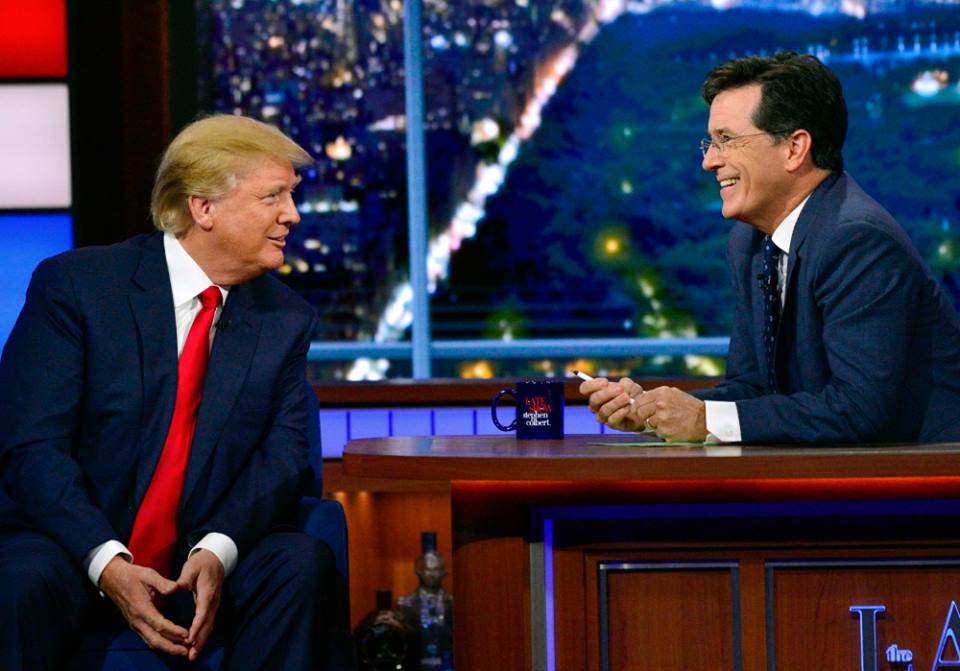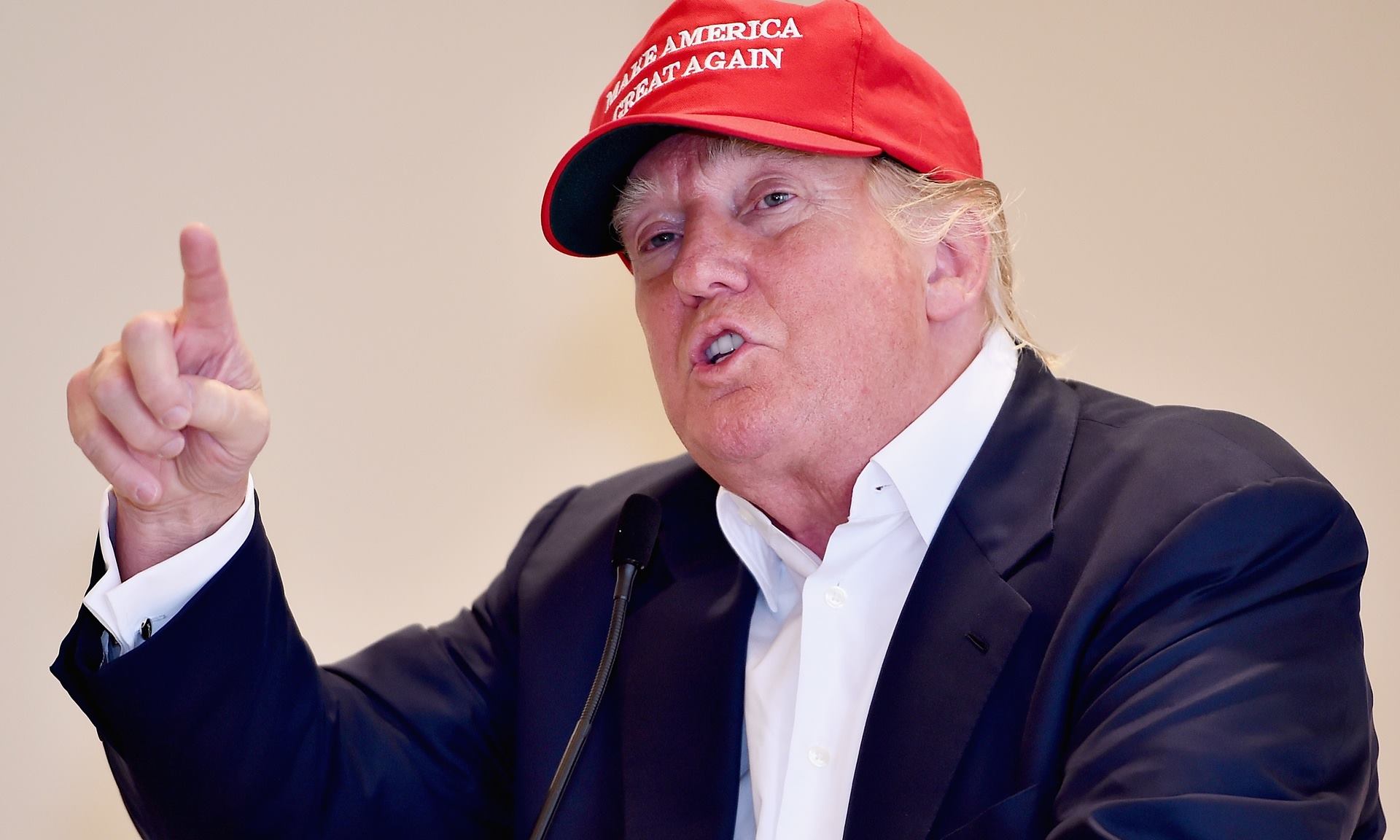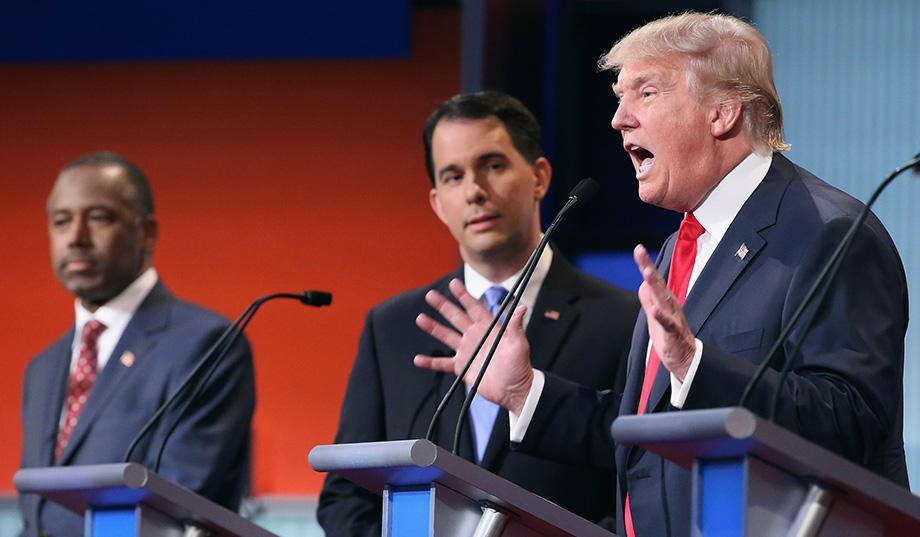NICK MASTRINI dissects Donald Trump’s controversial political rhetoric and its reception in US media.
He has generalised Mexicans as rapists, and ensured us that Mexico will pay for a ‘great great wall’ on the American border. He thinks ‘it doesn’t really matter what [the media] write, as long as you’ve got a young and beautiful piece of ass.’ He feels confident in stating he has a ‘great relationship with the blacks,’ yet he believes ‘laziness is a trait’ of African-Americans. He is considered a businessman, yet his companies have filed for bankruptcy multiple times. So how, despite the controversy he incites with every word, is Donald Trump maintaining enough credibility during his presidential run to lead polls.
For a sociopath – someone ‘with a personality disorder manifesting itself in extreme antisocial attitudes and behaviour’ – the comments alluded to above would be expected; Trump’s modus operandi, though apparently acceptable to many, epitomises the ‘extreme’. Explore a list of his quotes, and you’ll find a vocabulary replete with hyperbole. There is only ‘winning’ and ‘losing’, ‘love’ and ‘hate’ in Trump’s black and white world. With such a binary perspective, it’s no wonder how Trump’s words may come across as ‘antisocial’ as a result.

The presidential candidate’s outspoken modus operandi, much like Nigel Farage in the UK, is frequently lauded as one of his strengths, even by those who disagree with his views. Much like a sociopath may have ‘extreme attitudes’ in order to gain attention in a social setting, Trump survives on these statements, regardless of their thoughtlessness, simply because he is newsworthy. It is equally the fault of institutions such as CNN for using this as their fuel, overcompensating for the emergence of internet culture by trying to summarise all knowledge in 140 characters. As this hypermodern habit grows – where speed or entertainment is preferable to validity, and live reports end up erroneous – Trump has become a perfect drug for 24-hour news channels, keeping their ratings up and their heart beating.
It is easy to imagine these words coming from another presidential candidate of the past: Stephen Colbert, fictional anchorman of the satirical late-night news show, The Colbert Report. Colbert is a comedian, who on his show acted the part of a right-wing political wannabe described by himself as a ‘well-intentioned, poorly informed, high status idiot’, also called Stephen Colbert. Trump’s current candidacy echoes Colbert’s brief (in character) run for POTUS in 2008, which spectators both praised for casting ‘an amusing and revealing eye on the hype and folly of presidential politics’ and criticised as a ‘self-promotional distraction’.

Explore Colbert’s Late Show YouTube channel, and you will find his ability to develop an argument, each sentence contributing to the next, at once both well-informed and entertaining. After years of mimicking someone who Trump would likely befriend, the real Stephen Colbert has a talent for discussion and reasoning that entirely contradicts the sociopathic characteristics he once feigned. None of his views are ‘extreme’ – that is, too far on one side to recognise the presence of the other. They are concise, relevant, and fair – all qualities that would be crucial in rebalancing the scales in US politics. Meanwhile, Trump is the political equivalent of clickbait, each one of his statements echoing the links emblazoned with ‘YOU WON’T BELIEVE WHAT HAPPENED NEXT’ on your Facebook feed.
In recent months, both of these men have been brought further into the spotlight. However, while Trump has proceeded with his outrageous statements, Colbert has shed his sociopathic shell. Colbert the provocateur has dropped the act, discarding his right-wing comedic persona to host The Late Show since September as himself. Trump has been himself all along – but now he is in the political arena, a fake-tanned gladiator battling with political correctness. A battle Trump appears to be winning, as the latest polls would suggest.
In this digital age, when stories need to constantly respond to real-time developments online, the performances of Trump and Colbert are both disseminated through short media, whether in the form of a sound bite, headline, or YouTube video. Trump has always traded in this currency, maintaining his fame before the internet with headline-worthy quotes fit for newspaper front-pages, alongside his role as a TV celebrity. This is crucial in dissecting how Trump’s political run has been supported by American news media: Trump’s role as a politician is still secondary to his significance as a celebrity, a familiar yet incongruous face that can be easily noticed and easily voted for. He has experience in manipulating the right people and organisations, perhaps thanks to his largely inherited wealth, to get what he wants – and the spheres of politics and business are not too disparate.

American media institutions know the power of Trump’s image, as does the world of late night television, where he has been a reliable source of entertainment for the past few months. On the whole, a move away from sensationalism and over-simplification is evident in late night TV. Colbert and other disciples of Jon Stewart have gained larger audiences who are seeking more informed news-based entertainment to counteract the increasingly informal reportage of news channels. CBS handing the Late Show job from David Letterman to Colbert, and swapping Craig Ferguson for James Corden on The Late Late Show, reflect an intention to attract younger audiences – audiences that commonly watch The Daily Show, and other political comedy that seeks to continue the ‘War on Bulls**t.’
Yet, with the aforementioned popularity of YouTube and Twitter, this entertainment is proliferating Trump’s profile even when he is being criticised. Although Colbert’s intentions are satirical, and his elegance of argument is clear, his role may be part of a larger machine – in tandem with Fox News, CNN, and the plethora of 24-hour news channels available – that has extended Trump’s political career, at least for now. As the saying goes, there is no such thing as bad publicity, and Trump is reaping the rewards.




